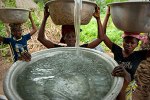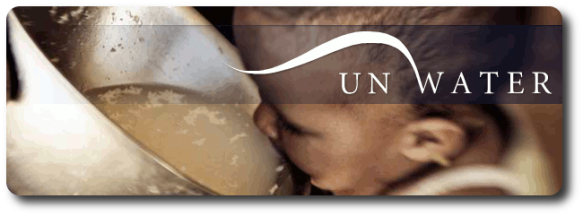Water is important to all life. I have long realized that. The past year or two, living in the southeast, reminders of the country’s crumbling infrastructures surfaced as I faced a temporary precipice of being without water and possibly having contaminated water.
Maybe precipice is too strong a word for the situation. The words “very inconvenient” probably fit better. When I turn the knob on the faucet, I expect water to run. One day, the first of many, no water ran from the tap — not even a trickle. I was current on my water bill or so I thought. I couldn’t imagine what was wrong. I contacted the water management company which stated a water main break had necessitated turning off the water. Management hoped to have water restored by the end of the day. The operative word here, “hoped.”
What was I to do in the interim? I had one bottle of designer water in the refrigerator. I also wondered why I hadn’t received an alert or notice. Later that evening, restoration. Two days later, before my morning shower [essential to wakefulness along with caffeine] the water was off again. Another rupture of a water main.
Just as in my previous hurricane-prone living environments of Louisiana and Florida, I began stockpiling bottled water.  Good thing. A few weeks later the water was off again. Before restoration, I received an alert to boil the tap water until further notice. Until further notice? How long would that be? The notice came three days later that the tap water was safe. I decided to boil the water for a few more days, just in case.
Good thing. A few weeks later the water was off again. Before restoration, I received an alert to boil the tap water until further notice. Until further notice? How long would that be? The notice came three days later that the tap water was safe. I decided to boil the water for a few more days, just in case.
Maybe I ought to consider relocation. My American sense of entitlement was aggrieved. Well, this inconvenience gave me a better understanding of what many people in the developing world experience daily.
Then the news of the water tragedy in Flint, Michigan, became the lead story on every news network in the country. Residents of Flint were being poisoned by the lead in their drinking water. The spotlight again was on crumbling infrastructures. News programs showed Flint residents holding up bottles of brown tap water. Over and over again, state officials had reassured the residents their drinking water was safe. Really? It seems criminal to lie, cut corners or save money using the lives of others as collateral.
I wondered, where are the checks and balances? Where are the people whose jobs are to test the water, treat it and transport it to homes and businesses? Did anyone speak up? Sadly, other voices prevailed. Drinking water can be improved but the damages from lead poisoning cannot be reversed.
Today is World Water Day. The United Nations (UN) reminds us how water and water-related jobs have the power to transform people’s lives for the better. Learn more about what others are doing to transform people’s lives through water: http://www.unwater.org/worldwaterday/about/en/
Photo/UN: Women gather clean water in Woukpokpoe Village, Benin. Anne Hoel/World Bank

